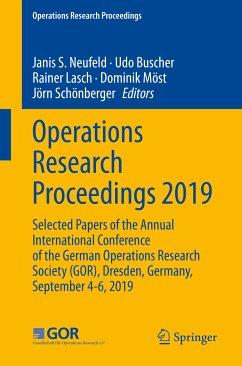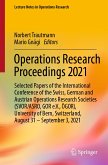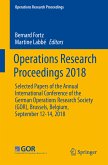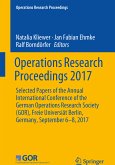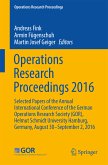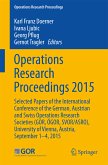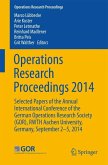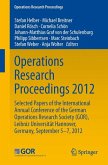This book gathers a selection of peer-reviewed papers presented at the International Conference on Operations Research (OR 2019), which was held at Technische Universität Dresden, Germany, on September 4-6, 2019, and was jointly organized by the German Operations Research Society (GOR) the Austrian Operations Research Society (ÖGOR), and the Swiss Operational Research Society (SOR/ASRO). More than 600 scientists, practitioners and students from mathematics, computer science, business/economics and related fields attended the conference and presented more than 400 papers in plenary presentations, parallel topic streams, as well as special award sessions.
The respective papers discuss classical mathematical optimization, statistics and simulation techniques. These are complemented by computer science methods, and by tools for processing data, designing and implementing information systems. The book also examines recent advances in information technology, which allow big data volumes to be processed and enable real-time predictive and prescriptive business analytics to drive decisions and actions. Lastly, it includes problems modeled and treated while taking into account uncertainty, risk management, behavioral issues, etc.
Dieser Download kann aus rechtlichen Gründen nur mit Rechnungsadresse in A, B, BG, CY, CZ, D, DK, EW, E, FIN, F, GR, HR, H, IRL, I, LT, L, LR, M, NL, PL, P, R, S, SLO, SK ausgeliefert werden.

